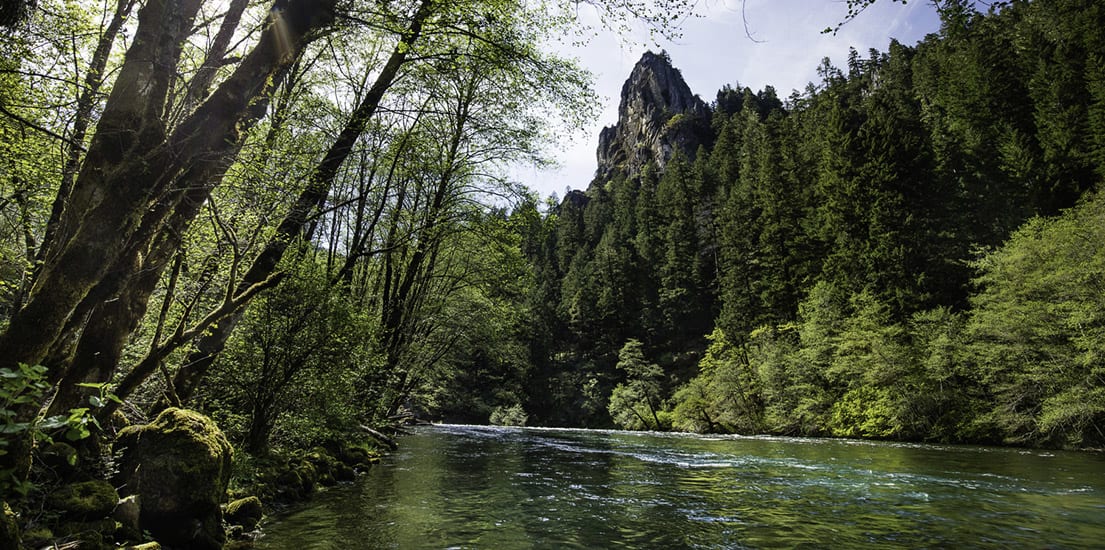Two years ago, the future was uncertain for Douglas County’s Swiftwater Park on Oregon’s North Umpqua River. The 211-acre park controls the western end of the 79-mile North Umpqua National Recreation Trail, at the beginning of some of the most coveted fly fishing water in the West. It also harbors stands of ancient forest, prime habitat for salmon and steelhead and over a mile of river frontage. When the county was forced to sell the park, Western Rivers Conservancy stepped in to buy it, ensuring this reach of the North Umpqua remains protected, rather than harvested or developed, and open to the public forever.
The Umpqua and Rogue are the only two coastal rivers in Oregon with headwaters in the Cascade Range. All other coastal rivers rise in the lower-elevation Coast Range. Fed by snowmelt, the North Umpqua flows clean and cold year-round, its chilly emerald waters a contrast to the nearby rivers that warm dramatically in summer. This anomaly is what makes the North Umpqua so crucial to cold-water fish, including Chinook and coho salmon, sea-run cutthroat and summer and winter steelhead.
WRC completed the project this month when we conveyed the lands to the Bureau of Land Management for inclusion and protection within the North Umpqua Wild and Scenic River Corridor. This was WRC’s first effort on the North Umpqua, and we are now working to conserve additional reaches of this vitally important West Coast river.


